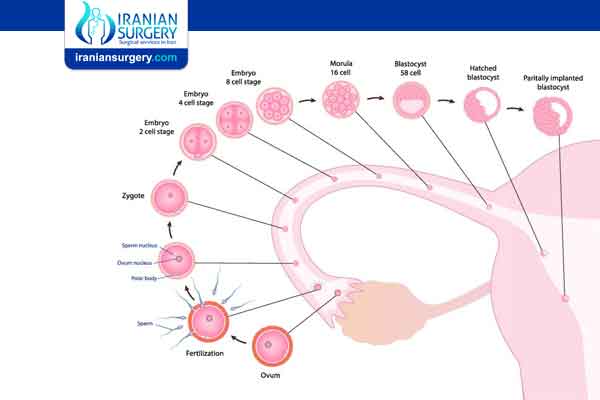Does ICSI increase chances of pregnancy?
How long does ICSI treatment last?
One cycle of ICSI takes between four weeks and six weeks to complete. You and your partner can expect to spend a half-day at the clinic for the egg and sperm retrieval procedures. You will usually be asked to go back between two days and five days later for the embryo transfer procedure.
If you’re under 40, you should be offered up to three full cycles of IVF with or without ICSI. If you’re aged between 40 and 42 years old, you’ve never had IVF before and you have no sign of low egg numbers, you should be offered one full cycle after full discussion of the implications of IVF and pregnancy at this age.
Read more about : Ivf process in Iran
Read more about : How much does 1 round of IVF cost in Iran?
What are the success rates of ICSI?
The ICSI procedure fertilizes 50 to 80 percent of eggs. You might assume all eggs get fertilized with ICSI-IVF, but they don’t. Fertilization isn’t guaranteed even when a sperm is injected into the egg.
Remember that fertilization rates don’t tell you the clinical pregnancy or live birth rates. Once fertilization happens, the success rate for a couple using ICSI with IVF is the same as a couple using regular IVF treatment.
Can ICSI affect a baby’s development?
If a woman gets pregnant naturally, there is a 1.5% to 3% chance that the baby will have a major birth defect. The chance of birth defects associated with ICSI is similar to IVF, but slightly higher than in natural conception.
The slightly higher risk of birth defects may actually be due to the infertility and not the treatments used to overcome the infertility.
Certain conditions have been associated with the use of ICSI, such as Beckwith-Wiedemann syndrome, Angelman syndrome, hypospadias, or sex chromosome abnormalities. They are thought to occur in far less than 1% of children conceived using this technique.
Some of the problems that cause infertility may be genetic. For example, male children conceived with the use of ICSI may have the same infertility issues as their fathers.
Will ICSI work?
ICSI fertilizes 50% to 80% of eggs. But the following problems may occur during or after the ICSI process:
. Some or all of the eggs may be damaged.
. The egg might not grow into an embryo even after it is injected with sperm.
. The embryo may stop growing.
Once fertilization takes place, a couple’s chance of giving birth to a single baby, twins, or triplets is the same if they have IVF with or without ICSI.
How long after ICSI does fertilization occur?
Fertilization occurs in 4-6 hours in humans but there are no visible signs until approximately 17-18 hours later. The first signs that fertilization have occurred visibly is the development of two round bodies in the center of the egg. The slightly smaller body is the female pronucleus and contains 23 chromosomes that the egg contributes to the embryo. The other round body is the male pronucleus and contains the contribution of 23 chromosomes from the sperm. It is critical that the egg is checked at this point in time for fertilization, because over the next 6 hours or so, the two pronuclei come together in a process known as syngamy, where the two pronuclei join chromosomes, forming one nucleus of 46 chromosomes.
Within the next 6 hours, the now "fertilized egg" will divide producing a 2-cell embryo. Further division or "cleavage" takes place every 10-12 hours, producing a 4-cell embryo on day 2, an 8-cell embryo on day 3, a morula with too many cells to count on day 4, and a blastocyst on day 5 or 6.
Does ICSI increase the chance of multiple pregnancy?
Since ICSI takes place as part of the IVF process, there is an increased chance of becoming pregnant with multiples for couples that try ICSI. Couples that use ICSI with IVF have about a 30 to 35 percent chance for twins and a 5 to 10 percent chance for having triplets or more.
10 common questions about How long does it take to get pregnant with ICSI
Related Posts:
- How Long After IVF Transfer Do You Know If You're Pregnant?
- Can A Surrogate Get Pregnant While Pregnant?
- Am I Pregnant?
- How Soon After Egg Donation Can You Get Pregnant
- What Is a Good AMH Level to Get Pregnant?
- What Are the Chances of Getting Pregnant After…
- Pregnancy: Ovulation, Conception & Getting Pregnant
- Does Freezing Your Eggs Make It Harder to Get Pregnant?
- ICSI Success Rate by Age
- How Long Does IVF Take from First Appointment?



